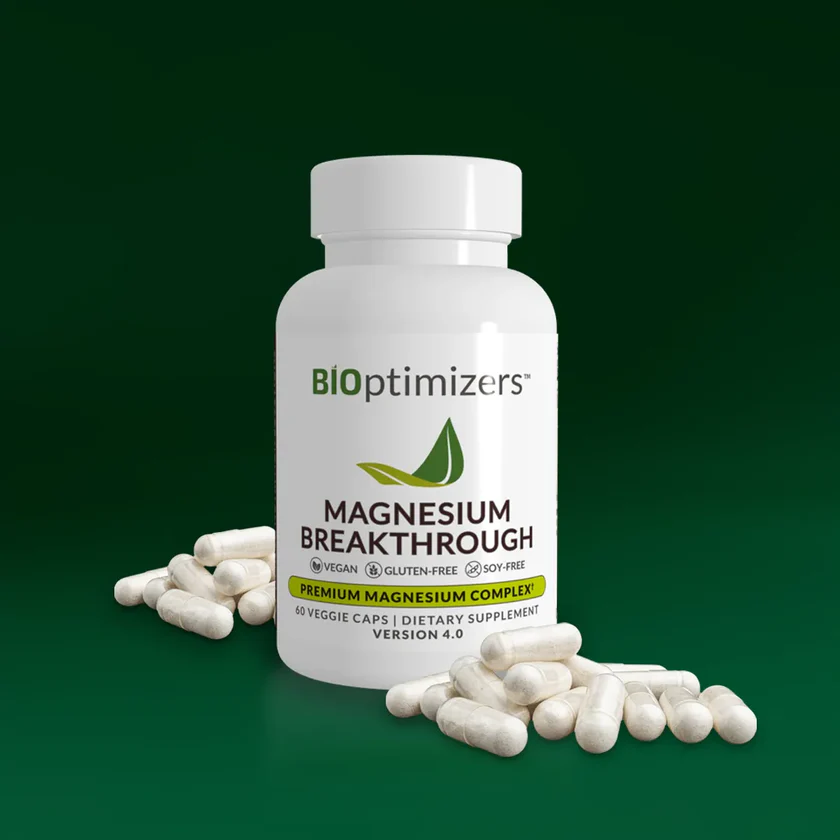Magnesium Breakthrough Review: The 7-in-1 Supplement That Promises to Banish Stress and Transform Your Sleep – Does It Actually Work?
An in-depth analysis of the science, user reviews, and a head-to-head comparison with other magnesium supplements to help you decide if it's worth your money.

Key Takeaways
- It works, but you’ll pay for it. Magnesium Breakthrough delivers on its promises for sleep, stress, and muscle recovery according to both scientific evidence and user reviews – but costs more than single-form magnesium supplements. The multi-form approach is backed by logic, though not extensively studied versus single forms.
- The 365-day guarantee is the real differentiator. You get a full year to test the product risk-free, which matters because magnesium benefits can take 4-8 weeks to fully manifest. This removes the biggest barrier to trying a premium-priced supplement.
- Best for people with multiple deficiency symptoms. If you’re dealing with sleep issues AND stress AND muscle cramps AND fatigue, the seven-form approach makes sense. If you just need help sleeping, basic magnesium glycinate at 1/10th the price will likely suffice.
- The science supporting magnesium is rock-solid. Over 300 bodily processes require magnesium, and nearly 50% of Americans don’t get enough. The research backing magnesium supplementation for sleep, stress, muscle function, and cardiovascular health is extensive and credible.
- Expect digestive adjustment and plan for consistency. The magnesium citrate component may cause loose stools initially. Start with one capsule if you’re sensitive. Results require 3-4 weeks of daily use—sporadic supplementation won’t work. The loading phase (6 capsules daily for a week) accelerates tissue replenishment but isn’t mandatory.
Tossing and turning all night, muscles twitching when you finally drift off, waking up feeling like you barely slept at all. Maybe you’re snapping at your partner over minor things, or your brain feels like it’s running through fog by 2 PM. Sound familiar?
You might be dealing with magnesium deficiency, and you’re damn sure not alone. Research published in the Journal of the American Osteopathic Association estimates that nearly 50% of Americans consume less than the recommended daily amount of magnesium [1].
The symptoms read like a list of modern life complaints: poor sleep, chronic stress, muscle cramps, fatigue, and brain fog.
BiOptimizers Magnesium Breakthrough positions itself as the antidote to this widespread problem. Unlike standard magnesium supplements that contain one or two forms of this mineral, this product packs seven different types of magnesium into each capsule.
The company claims this multi-form approach addresses the absorption and effectiveness problems that plague typical magnesium supplements.
But does magnesium breakthrough work, or is this just clever marketing wrapped around an overpriced supplement? I spent weeks examining the science behind each magnesium form, analyzing user reviews, comparing it against competitors, and consulting published research to give you a straight answer.
Magnesium Breakthrough Review
Magnesium Breakthrough

Magnesium Breakthrough delivers verified results for sleep, stress, and muscle recovery but costs significantly more than basic magnesium supplements. The seven-form approach makes sense if you're experiencing multiple deficiency symptoms (poor sleep + stress + muscle cramps + fatigue), but single-form options work fine for isolated issues. The standout feature is the 365-day money-back guarantee, which removes purchasing risk and acknowledges that magnesium benefits take 4-8 weeks to appear. The science supporting magnesium supplementation is robust, with nearly 50% of Americans deficient. Expect initial digestive adjustment and commit to 3-4 weeks of consistent daily use for results.
Product Brand: Bioptimizers
4.8
Pros
- - Complete multi-form approach addresses different bodily systems
- - High-quality, well-absorbed magnesium forms (particularly bisglycinate and Sucrosomial®)
- - Strong user reviews reporting improvements in sleep, stress, muscle recovery, and energy
- - Exceptional 365-day money-back guarantee removes financial risk
- -Science-backed formulation with proper dosing
Cons
- - More expensive than other Magnesium Supplements
What is Magnesium Breakthrough? A Quick Overview
BiOptimizers Magnesium Breakthrough 4.1 is a dietary supplement that combines seven distinct forms of magnesium in a single capsule. The product was developed by BiOptimizers, a supplement company founded by Wade Lightheart and Matt Gallant, who focus on digestive and metabolic optimization products [2].
The key selling proposition = multiple magnesium forms working together to address different bodily functions and overcome the absorption limitations of single-form supplements.
Each bottle contains 60 capsules, with a recommended serving of 2 capsules daily, though the company suggests starting with a higher “loading dose” for the first week.
The seven forms included are:
- Magnesium Chelate,
- Magnesium Citrate,
- Magnesium Bisglycinate,
- Magnesium Malate,
- Sucrosomial® Magnesium,
- Magnesium Taurate, and
- Magnesium Orotate.
Each form targets different systems in your body, from your cardiovascular system to your muscles to your brain.
The Master Mineral: Understanding Magnesium’s Critical Role in Your Body
Magnesium doesn’t get the attention that calcium or vitamin D receive, but it’s involved in over 300 chemical processes throughout your body [3]. The National Institutes of Health classifies it as an essential mineral that supports:
- Energy production: Magnesium activates adenosine triphosphate (ATP = the molecular currency of energy in your cells)
- Protein synthesis: Building and repairing muscle tissue requires adequate magnesium levels
- Muscle and nerve function: Regulates neurotransmitters and muscle contractions
- Blood glucose control: Helps insulin transport glucose into cells for energy
- Blood pressure regulation: Relaxes blood vessels and supports healthy cardiovascular function
- DNA and RNA synthesis: Plays a role in genetic material production and cellular health
- Bone development: Works alongside calcium to maintain bone density
- Glutathione production: Supports your body’s master antioxidant system [4]
Dr. Carolyn Dean, author of “The Magnesium Miracle,” has stated that magnesium deficiency may be responsible for more diseases than any other nutrient deficiency [5].
(Ed. note: This is a bold claim, but the research supporting magnesium’s widespread importance is extensive.)
Your body can’t produce magnesium on its own. You must obtain it through diet or supplementation. Modern agricultural practices have depleted soil magnesium levels, making it harder to get sufficient amounts from food alone [6].
Stress, alcohol consumption, certain medications, and digestive issues further deplete your magnesium stores.
“But wait, can’t I just eat more spinach and almonds?”
Yes, magnesium-rich foods help, but you’d need to consume roughly 3 cups of cooked spinach daily to meet the recommended dietary allowance of 400-420mg for men and 310-320mg for women [1].
Most people don’t come close.
The “Breakthrough” Blend: A Detailed Look at Each of the 7 Magnesiums
The foundation of BiOptimizers Magnesium Breakthrough rests on its multi-form approach.
Different magnesium compounds have different absorption rates, bioavailability (how much your body actually absorbs and uses), and effects on specific body systems.
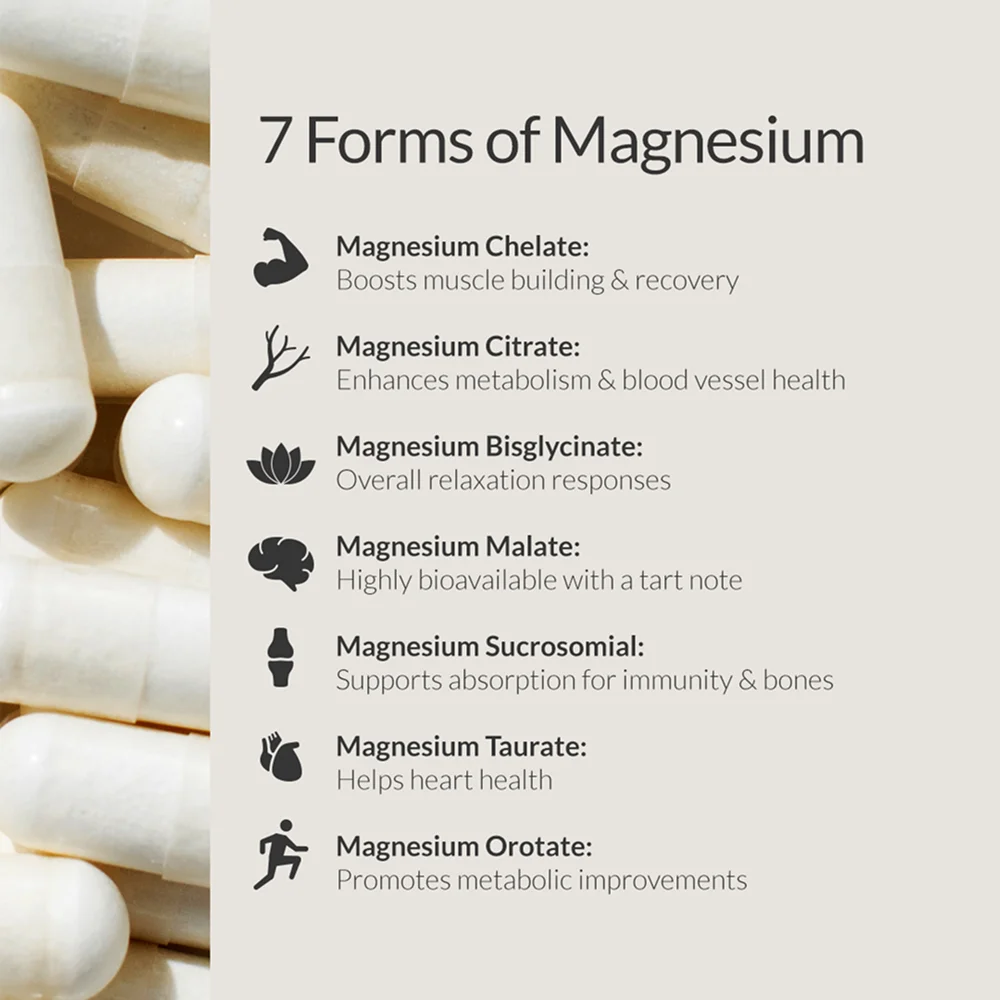
Magnesium Chelate: For Muscle Building and Recovery
Magnesium chelate refers to magnesium bound to amino acids through a chelation process (= a chemical binding that protects minerals during digestion). This binding protects the magnesium from stomach acid and enhances absorption in the intestines [7].
Studies show chelated minerals have higher bioavailability compared to inorganic forms like magnesium oxide.
This form specifically supports muscle tissue repair and growth by facilitating protein synthesis. Athletes and people engaged in regular strength training may benefit most from this form, as intense exercise depletes magnesium stores and creates higher demand for muscle recovery [8].
Magnesium Citrate: For Metabolic Health
Magnesium citrate combines magnesium with citric acid. This is one of the most commonly available forms of magnesium supplements, valued for its decent absorption rate and mild laxative effect [9].
The citrate form supports metabolic processes and helps maintain regularity. Research published in the Journal of the American College of Nutrition found that magnesium citrate demonstrated superior bioavailability compared to magnesium oxide in a randomized trial [10].
For those who struggle with occasional constipation, the gentle bowel-stimulating effect of magnesium citrate provides dual benefits: magnesium supplementation plus digestive support.
Magnesium Bisglycinate: For Relaxation and Sleep
Also known as magnesium glycinate, this form binds magnesium to the amino acid glycine. Glycine itself has calming properties and may improve sleep quality [11]. The combination creates a highly absorbable form of magnesium with minimal laxative effects.
Magnesium bisglycinate crosses the blood-brain barrier more effectively than other forms, making it particularly effective for stress reduction, anxiety relief, and sleep improvement [12]. The chelated structure also makes it gentle on the digestive system, reducing the likelihood of the loose stools that plague many magnesium supplements.
Research indicates that magnesium plays a role in regulating neurotransmitters like GABA (gamma-aminobutyric acid = your brain’s primary inhibitory neurotransmitter), which promotes relaxation and sleep [13].
Magnesium Malate: For Energy and Muscle Soreness
Magnesium malate combines magnesium with malic acid, a compound found naturally in fruits that plays a role in the Krebs cycle (the cellular process that produces energy). This form is particularly valued for combating fatigue and reducing muscle pain [14].
A study examining fibromyalgia patients found that magnesium malate supplementation significantly reduced pain and tenderness [15]. The malate component helps with aluminum detoxification and may provide additional energy-boosting benefits beyond magnesium alone.
Athletes recovering from intense training or individuals dealing with chronic fatigue may find magnesium malate addresses their needs more directly than other forms.
Sucrosomial® Magnesium: For Immune Support and Bone Health
Sucrosomial® Magnesium represents a newer delivery technology where magnesium is enveloped in a protective coating made of special fats and sugars. This protective layer allows the magnesium to pass through the stomach without degradation and be absorbed in the intestines [16].
Clinical studies have shown Sucrosomial® Magnesium achieves high bioavailability without causing diarrhea, even at higher doses [17]. This form particularly supports bone mineral density and immune function.
The patented delivery system sets this apart from traditional magnesium compounds and contributes to the premium positioning of the best magnesium supplement formulations.
👉 See Also: Sucrosomial Vs Liposomal Supplement Technology: Which Offers Better Bioavailability?
Magnesium Taurate: For Cardiovascular Health
Magnesium taurate binds magnesium to the amino acid taurine. Both compounds independently support cardiovascular health, making this combination particularly beneficial for heart function and blood pressure regulation [18].
Research has demonstrated that magnesium deficiency is associated with increased risk of cardiovascular disease, arrhythmias, and hypertension [19]. Taurine has been shown to have cardioprotective effects and may help prevent arrhythmias [20].
This form doesn’t have a laxative effect and is well-tolerated by most people. For individuals with cardiovascular concerns or family history of heart disease, magnesium taurate offers targeted support.
Magnesium Orotate: For Metabolic Processes and Athletic Performance
Magnesium orotate combines magnesium with orotic acid, a compound that facilitates the creation of DNA and RNA. This form has been studied for its ability to improve athletic performance and support metabolic health [21].
Orotic acid acts as a carrier, transporting magnesium into cells and improving intracellular magnesium levels. Some research suggests magnesium orotate may be particularly effective for supporting heart health, though more studies are needed [22].
Athletes and individuals looking to optimize cellular energy production may benefit from this form’s unique delivery mechanism.
The Top 7 Benefits of Magnesium Breakthrough: Real or Hype?
Let’s examine the specific benefits BiOptimizers claims for their product, backed by both scientific evidence and user experiences.
Enhanced Sleep Quality and Faster Sleep Onset
Magnesium for sleep has substantial research support. A randomized, double-blind, placebo-controlled trial published in the Journal of Research in Medical Sciences found that magnesium supplementation improved insomnia symptoms, sleep efficiency, sleep time, and early morning awakening [23].
The mechanism works through several pathways: magnesium regulates melatonin (the hormone that controls sleep-wake cycles), binds to GABA receptors to promote relaxation, and helps regulate your body’s stress-response system [24].
User reviews consistently highlight sleep improvements. According to online reviews, one verified purchaser stated: “I fall asleep faster, sleep deeper, and wake up feeling actually rested for the first time in years.”
Does magnesium breakthrough work better than single-form magnesium for sleep? The inclusion of magnesium bisglycinate specifically targets sleep pathways, while other forms address underlying issues like muscle tension and stress that interfere with rest.
Significant Reduction in Stress and Anxiety
Magnesium for stress has strong scientific backing. A systematic review of 18 studies found that magnesium supplementation appears to be effective for reducing anxiety in anxiety-vulnerable populations [25].
The proposed mechanism involves magnesium’s role in regulating the hypothalamic-pituitary-adrenal (HPA) axis = your body’s central stress response system. Low magnesium levels are associated with elevated stress hormones and increased anxiety behaviors in both animal and human studies [26].
Several users report noticeable anxiety reduction. According to verified customer reviews: “I didn’t realize how much low-grade anxiety I was carrying until it lifted after two weeks on this supplement.” Another noted: “My stress response feels more manageable. I don’t spiral over small inconveniences anymore.”
Improved Muscle Recovery and Reduced Cramping
Magnesium’s role in muscle function is well-established. It regulates muscle contractions by controlling calcium flow into muscle cells, and deficiency commonly manifests as cramps, spasms, and prolonged soreness [27].
A study of athletes found that magnesium supplementation improved muscle recovery markers and reduced inflammation following intense exercise [28].
The combination of magnesium chelate, malate, and citrate in Magnesium Breakthrough specifically targets different aspects of muscle health.
Endurance athletes and strength trainers frequently mention reduced cramping in reviews. According to online testimonials, one CrossFit athlete reported: “No more calf cramps waking me up at 3 AM. Recovery between workouts has noticeably improved.”
Boosted Energy Levels and Cognitive Function
“Won’t magnesium make me sleepy?” This common question reveals a misunderstanding. While magnesium supports sleep when you want to rest, it also supports energy production at the cellular level.
Magnesium is required for ATP synthesis = the process that creates usable energy in your cells [29]. Deficiency leads to reduced ATP production, resulting in fatigue, brain fog, and poor physical performance.
The magnesium malate and orotate forms specifically support energy pathways. Research has shown that magnesium supplementation can improve cognitive function, particularly in older adults or those with subclinical deficiency [30].
Users frequently report a paradoxical effect: better sleep at night paired with improved daytime energy. According to product reviews: “I have steady energy throughout the day instead of that 2 PM crash.”
Support for Healthy Blood Sugar Levels
Magnesium plays a role in glucose metabolism and insulin signaling. A meta-analysis of 13 randomized controlled trials found that magnesium supplementation improved insulin sensitivity and fasting glucose levels in people at risk for diabetes [31].
The mechanism involves magnesium’s role as a cofactor for enzymes that regulate glucose metabolism. Magnesium deficiency has been linked to insulin resistance and increased type 2 diabetes risk [32].
Several users with pre-diabetes or blood sugar concerns mention improved glucose control, though this benefit takes longer to manifest than sleep or stress improvements.
Stronger Bones and a More Robust Immune System
While calcium gets most of the attention for bone health, magnesium is equally important. About 60% of your body’s magnesium is stored in bones, where it influences both bone matrix formation and bone cell activity [33].
Research has shown that higher magnesium intake is associated with greater bone mineral density and reduced fracture risk, particularly in older adults [34]. The Sucrosomial® Magnesium form specifically supports bone health.
The immune system benefits are less direct but significant. Magnesium supports immune cell function and helps regulate inflammatory responses [35]. Chronic magnesium deficiency is associated with increased inflammatory markers and impaired immune response.
Enhanced Cardiovascular Health
The cardiovascular benefits of magnesium are supported by substantial research. A meta-analysis of prospective studies found that higher magnesium intake was associated with reduced risk of cardiovascular disease, stroke, and heart failure [36].
Magnesium helps regulate blood pressure by relaxing blood vessels, supports healthy heart rhythm, and may prevent arterial calcification [37]. The magnesium taurate form specifically targets cardiovascular function.
Users with blood pressure concerns occasionally report modest improvements, though this should never replace prescribed medications.
How to Use Magnesium Breakthrough for Maximum Results
BiOptimizers recommends taking 2 capsules before bed with or without food as the standard maintenance dose. Each 2-capsule serving provides approximately 500mg of elemental magnesium from the seven different forms.

The company suggests a “loading phase” for the first 5-7 days where you take 2 capsules with each meal (6 capsules daily) to rapidly replenish depleted magnesium stores. This approach is based on the concept that severely deficient individuals need higher initial doses to restore optimal tissue magnesium levels [38].
Taking magnesium with food can reduce the likelihood of digestive discomfort, though the highly absorbable forms in this supplement are generally well-tolerated on an empty stomach. The before-bed timing maximizes the sleep and relaxation benefits.
“Should I take it in the morning if I want energy benefits?” You can split the dose – one serving mid-day and one before bed – though most users find the before-bed protocol works well for both sleep and daytime energy.
👉 Read Also: What is the Best Time of Day to Take Magnesium Supplements?
Consistency matters more than precise timing.
Magnesium tissue levels take weeks to replenish, so sporadic supplementation won’t deliver meaningful results. Plan on 3-4 weeks of consistent use before evaluating effectiveness.
Potential Side Effects and Who Should Be Cautious
Magnesium breakthrough side effects are typically mild when they occur. The most common complaint involves digestive issues, particularly loose stools or diarrhea.
This happens when you consume more magnesium than your intestines can absorb – the excess draws water into your bowel.
The magnesium citrate component has mild laxative properties, which some users appreciate but others find inconvenient. Starting with a lower dose (1 capsule) and gradually increasing can minimize this effect.
Other potential side effects include:
- Nausea or stomach discomfort (usually when taken on an empty stomach)
- Drowsiness or grogginess (typically only if taken in excessive amounts)
- Low blood pressure in sensitive individuals
Who should be cautious or avoid magnesium supplements?
- Individuals with kidney disease or impaired kidney function should not take magnesium supplements without medical supervision, as damaged kidneys can’t properly excrete excess magnesium [39].
- People taking certain medications, including some antibiotics, bisphosphonates, and diuretics, may experience interactions.
- Those with heart block or certain cardiac conditions should consult their physician.
- Pregnant and breastfeeding women should discuss supplementation with their healthcare provider.
Magnesium toxicity (hypermagnesemia = dangerously high magnesium blood levels) from supplementation is rare in people with healthy kidneys but can occur at very high doses. Symptoms include nausea, low blood pressure, confusion, irregular heartbeat, and in severe cases, cardiac arrest [40].
The tolerable upper intake level for supplemental magnesium is 350mg daily for adults according to the National Institutes of Health, though this applies primarily to forms like magnesium oxide [1].
Magnesium Breakthrough provides approximately 500mg per serving, which exceeds this guideline but uses highly absorbable forms with lower laxative thresholds.
How Does Magnesium Breakthrough Stack Up Against Other Magnesium Supplements?
Here’s how BiOptimizers Magnesium Breakthrough compares to other popular magnesium options:
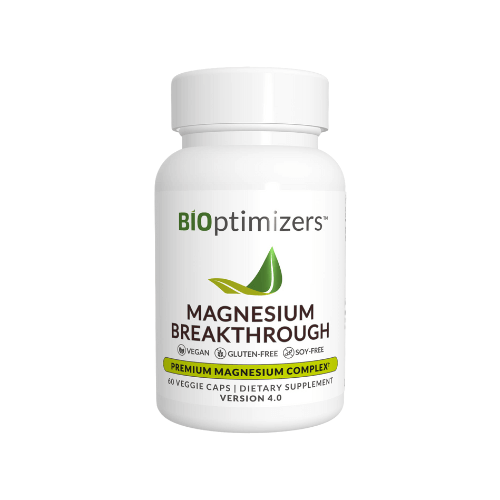 4.9 ★★★★★ | 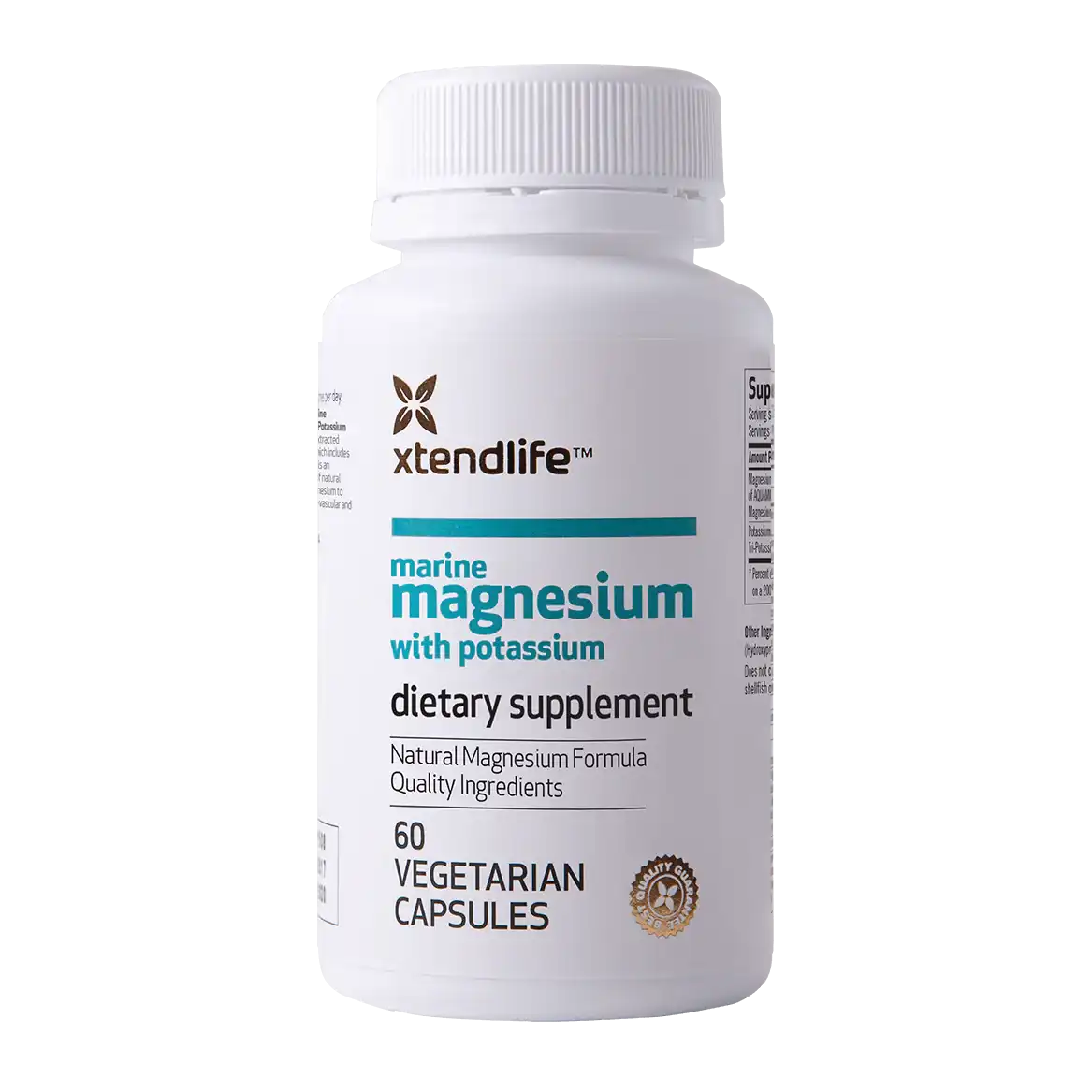 4.8 ★★★★★ | 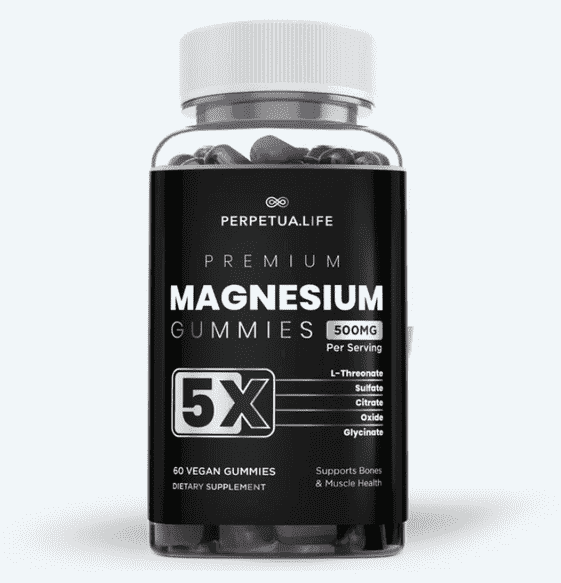 4.7 ★★★★★ |  4.7 ★★★★★ | 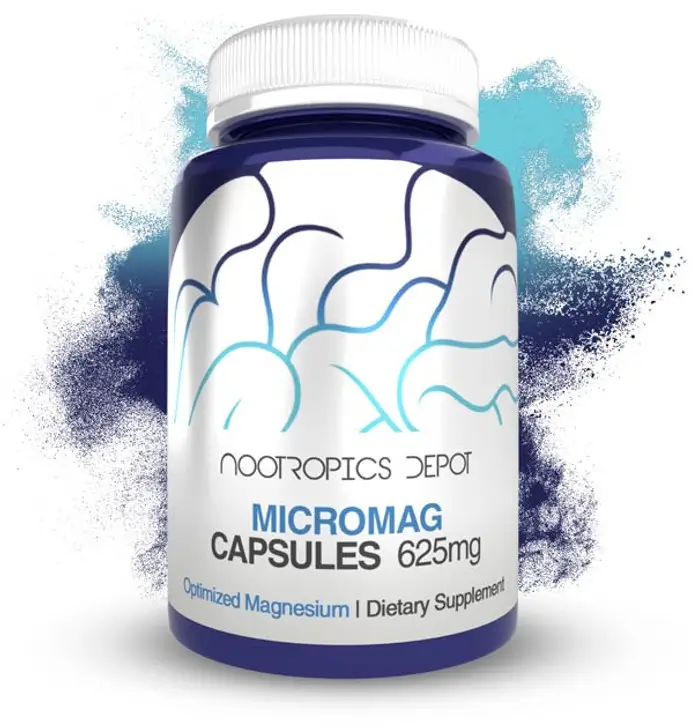 4.6 ★★★★★ | |
|---|---|---|---|---|---|
| Name | Magnesium Breakthrough by Bioptimizers | Marine Magnesium by XtendLife | Magnesium Complex Gummies by Perpetua Life | PureDose Liposomal Magnesium by Purality Health | MicroMag by Nootropics Depot |
| Special | 7 Forms Of Magnesium | Magnesium from Seaweed | 5 Forms of Magnesium + Magnesium Threonate | Liposomal Technology | Sucrosomial Technology |
| Servings | 30 | 30 | 30 | 30 | 30 |
| Amount / Serving | 500 mg | 530 mg | 500 mg | 1350 mg | 625 mg |
| Price | from $27.20 | $13.50 | from $23.20 | from $40.50 | $19.99 |
*Prices accurate as of January 2024 and may vary by retailer. Price range varies by package size; based on single bottle purchase.
Magnesium Breakthrough costs somewhat more per serving than single-form alternatives. The question is whether the multi-form approach justifies the premium.
The seven types of magnesium in BiOptimizers’ formula theoretically cover all bases – muscle recovery, energy, sleep, cardiovascular health, bone support – in one product.
Whether you need all seven forms or would be better served by one or two specific forms depends on your individual needs and budget.
Pricing, Purchasing, and the 365-Day Guarantee
BiOptimizers sells Magnesium Breakthrough exclusively through their website (and authorized partners like Amazon).

Here’s the current pricing structure:
| Purchase Option | One-Time Buy | Recurring Buy |
|---|---|---|
| 5 Bottles | $160.00 ($32.00/bottle) SAVE 20% | $136.00 ($27.20/bottle) SAVE 32% |
| 3 Bottles | $99.00 ($33.00/bottle) SAVE 15% | $87.00 ($29.00/bottle) SAVE 27% |
| 1 Bottle | $40.00 | $35.00 SAVE 12% |
| Extra Discount | Use code FDN10 for 15% off | Discount code does not apply |
The recurring subscription option provides the best per-bottle pricing and includes automatic monthly shipments, which you can cancel anytime.
The standout feature is the 365-day money-back guarantee. You can try the product for a full year and request a complete refund if unsatisfied. This policy demonstrates confidence in the product and removes purchasing risk.
Ready to try Magnesium Breakthrough risk-free?
[Click Here to Get the Best Price on Magnesium Breakthrough →]
To get the best price on Magnesium Breakthrough, the 5-bottle recurring subscription offers the deepest discount at $27.20 per bottle (32% savings). For one-time purchases, use coupon code FDN10 to stack an additional 15% discount on top of the bulk pricing.
👉 Again, don’t forget this exclusive 15% OFF Bioptimizers discount code called “FDN10“which never expires and can be used storewide and any time you shop from their online store.
Final Verdict: Is Magnesium Breakthrough the Right Choice for You?
After examining the science, user feedback, and comparative value, here’s the balanced assessment:
🙂 Pros:
- Complete multi-form approach addresses different bodily systems
- High-quality, well-absorbed magnesium forms (particularly bisglycinate and Sucrosomial®)
- Strong user reviews reporting improvements in sleep, stress, muscle recovery, and energy
- Exceptional 365-day money-back guarantee removes financial risk
- Science-backed formulation with proper dosing
- Minimal side effects for most users
🤔 Cons:
- More expensive than single-form alternatives
- Higher elemental magnesium dose may cause digestive issues in sensitive individuals
- Some users may not need all seven forms
- Only available direct from manufacturer or limited retailers
- Loading phase protocol requires taking 6 capsules daily initially
Who should buy Magnesium Breakthrough:
- Individuals with multiple symptoms of magnesium deficiency (sleep issues + stress + muscle cramps + fatigue)
- People who have tried single-form magnesium without satisfactory results
- Those seeking a premium, all-in-one supplement and willing to pay for quality
- Anyone who values the security of an extended money-back guarantee
- Health-conscious individuals who prefer an all-in-one solution over multiple separate supplements
Who might be better served by alternatives:
- Budget-conscious consumers who need basic magnesium supplementation
- People who specifically need one type of magnesium for a particular issue
- Individuals with sensitive digestive systems who need the gentlest possible form
- Those who prefer getting nutrients primarily from food sources
Is it worth the premium price?
If you’re dealing with multiple magnesium deficiency symptoms and single-form supplements haven’t delivered results, the multi-form approach justifies the investment. The 365-day guarantee means you can test it thoroughly without risk.
For someone with just occasional muscle cramps who would be fine with basic magnesium citrate or glycinate, spending 10x more for seven forms is probably overkill.
The science supporting magnesium supplementation is robust. The science specifically supporting multi-form supplementation over single-form is less established but logically sound given different absorption rates and tissue affinities of various magnesium compounds.
Magnesium Breakthrough represents a premium option in the magnesium supplement market. It’s not the cheapest, but the formulation quality, dosing, and complete formulation make it a legitimate contender for the best magnesium supplement for people seeking maximum benefits.
Frequently Asked Questions (FAQ)
References
- [1] National Institutes of Health – “Magnesium: Fact Sheet for Health Professionals” – Updated March 2021
- [2] BiOptimizers – “About BiOptimizers” – Accessed 2024
- [3] Schwalfenberg GK, Genuis SJ. Journal of the American Osteopathic Association – “The Importance of Magnesium in Clinical Healthcare” – September 2017
- [4] Nielsen FH. Magnesium Research – “Magnesium deficiency and increased inflammation: current perspectives” – 2018
- [5] Dean C. – “The Magnesium Miracle” – Ballantine Books – 2017 Edition
- [6] Guo W, et al. Science of The Total Environment – “Magnesium deficiency in plants: An urgent problem” – 2016
- [7] Ashmead HD. Journal of Applied Nutrition – “The absorption and metabolism of iron amino acid chelate” – 1993
- [8] Nielsen FH, Lukaski HC. Magnesium Research – “Update on the relationship between magnesium and exercise” – September 2006
- [9] Lindberg JS, et al. Journal of the American College of Nutrition – “Magnesium bioavailability from magnesium citrate and magnesium oxide” – February 1990
- [10] Walker AF, et al. Magnesium Research – “Mg citrate found more bioavailable than other Mg preparations in a randomised, double-blind study” – September 2003
- [11] Kawai N, et al. Sleep and Biological Rhythms – “The sleep-promoting and hypothermic effects of glycine are mediated by NMDA receptors in the suprachiasmatic nucleus” – April 2015
- [12] Abbasi B, et al. Journal of Research in Medical Sciences – “The effect of magnesium supplementation on primary insomnia in elderly: A double-blind placebo-controlled clinical trial” – December 2012
- [13] Held K, et al. Pharmacopsychiatry – “Oral Mg(2+) supplementation reverses age-related neuroendocrine and sleep EEG changes in humans” – November 2002
- [14] Russell IJ, et al. Journal of Nutritional Medicine – “Treatment of fibromyalgia syndrome with Super Malic: a randomized, double blind, placebo controlled, crossover pilot study” – 1995
- [15] Abraham GE, Flechas JD. Journal of Nutritional Medicine – “Management of Fibromyalgia: Rationale for the Use of Magnesium and Malic Acid” – 1992
- [16] Parisi G, et al. Magnesium Research – “Magnesium sulphate versus sucrosomial magnesium in subclinical magnesium deficiency” – 2019
- [17] Uysal N, et al. Nutrients – “Timeline (Bioavailability) of Magnesium Compounds in Hours: Which Magnesium Compound Works Best?” – December 2018
- [18] Rasmussen HS, et al. Archives of Internal Medicine – “Influence of magnesium substitution therapy on blood lipid composition in patients with ischemic heart disease” – March 1989
- [19] Rosanoff A, et al. Hypertension – “Suboptimal magnesium status in the United States: are the health consequences underestimated?” – March 2012
- [20] Xu YJ, et al. Experimental & Clinical Cardiology – “The potential health benefits of taurine in cardiovascular disease” – 2008
- [21] Golf SW, et al. Cardiovascular Drugs and Therapy – “On the significance of magnesium in extreme physical stress” – September 1998
- [22] Geiss KR, et al. Cardiovascular Drugs and Therapy – “Effects of magnesium orotate on exercise tolerance in patients with coronary heart disease” – 1998
- [23] Abbasi B, et al. Journal of Research in Medical Sciences – “The effect of magnesium supplementation on primary insomnia in elderly: A double-blind placebo-controlled clinical trial” – December 2012
- [24] Durlach J, et al. Magnesium Research – “Magnesium and therapeutics” – 1994
- [25] Boyle NB, et al. Nutrients – “The Effects of Magnesium Supplementation on Subjective Anxiety and Stress—A Systematic Review” – April 2017
- [26] Sartori SB, et al. Neuropharmacology – “Magnesium deficiency induces anxiety and HPA axis dysregulation: Modulation by therapeutic drug treatment” – January 2012
- [27] Nielsen FH. Current Opinion in Clinical Nutrition & Metabolic Care – “Magnesium, inflammation, and obesity in chronic disease” – July 2010
- [28] Chen HY, et al. Magnesium Research – “Magnesium enhances exercise performance via increasing glucose availability in the blood, muscle, and brain during exercise” – March 2014
- [29] Barbagallo M, Dominguez LJ. Archives of Biochemistry and Biophysics – “Magnesium metabolism in type 2 diabetes mellitus, metabolic syndrome and insulin resistance” – May 2007
- [30] Slutsky I, et al. Neuron – “Enhancement of learning and memory by elevating brain magnesium” – January 2010
- [31] Larsson SC, Wolk A. Journal of Internal Medicine – “Magnesium intake and risk of type 2 diabetes: a meta-analysis” – August 2007
- [32] Barbagallo M, et al. Archives of Biochemistry and Biophysics – “Magnesium metabolism in type 2 diabetes mellitus, metabolic syndrome and insulin resistance” – May 2007
- [33] Rude RK, et al. Biological Trace Element Research – “Bone loss induced by dietary magnesium reduction to 10% of the nutrient requirement in rats is associated with increased release of substance P and tumor necrosis factor-α” – 2004
- [34] Ryder KM, et al. Journal of the American Geriatrics Society – “Magnesium intake from food and supplements is associated with bone mineral density in healthy older white subjects” – November 2005
- [35] Tam M, et al. Nutrition – “Possible roles of magnesium on the immune system” – September 2003
- [36] Fang X, et al. BMC Medicine – “Dietary magnesium intake and the risk of cardiovascular disease, type 2 diabetes, and all-cause mortality: a dose–response meta-analysis of prospective cohort studies” – December 2016
- [37] Altura BM, Altura BT. Magnesium and Trace Elements – “Role of magnesium in patho-physiological processes and the clinical utility of magnesium ion selective electrodes” – 1991
- [38] Elin RJ. Clinical Chemistry – “Assessment of magnesium status for diagnosis and therapy” – 1987
- [39] Topf JM, Murray PT. Nephrology Dialysis Transplantation – “Hypomagnesemia and hypermagnesemia” – 2003
- [40] Konrad M, et al. Journal of the American Society of Nephrology – “Disorders of magnesium homeostasis” – April 2017
- [41] Firoz M, Graber M. Southern Medical Journal – “Bioavailability of US commercial magnesium preparations” – October 2001

